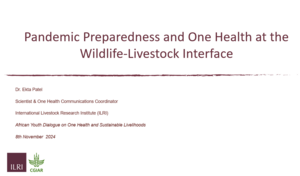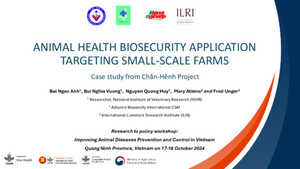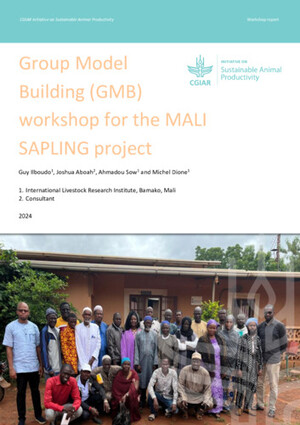
Evidence of improper usage of veterinary drugs in cattle in Maasailand, Kenya
Abstract
The extent of farm-level extra-label drug use in Kenya is not well documented in spite of its important implications on food safety, human health and international trade. One hundred and thirteen farmers in Kajiado and Narok districts were interviewed between October 2005 and February 2006 using a pre-tested questionnaire. The aim was to gather information on farmers’ veterinary drug use practices at the farm level. Descriptive and regression analyses were undertaken on the data. There was a high level of extra-label usage of veterinary drugs in cattle in the two study areas. Specifically, farmers used lower than recommended doses of all available trypanocides in all classes of cattle except in adult bulls where they overdosed with Veriben®, Novidium® and Tryzan®. Adamycin®, the most commonly used antibiotic in the two study sites, was underdosed at all concentrations in all classes of cattle. Except for Novidium® which farmers dissolved correctly, farmers in the two study sites used less than the recommended volume of water to prepare trypanocidal drugs. Farmers also used less than the recommended strength of acaricides for tick control, except for Dominex®. They also sprayed more cattle at each acaricide strength than the number recommended by the manufacturers. The propensity to use veterinary drugs correctly was positively correlated with farmer’s age and district of origin (p<0.1), but negatively associated with years of formal education of the household head (p<0.05). Policy suggestions are made based on the results.
Citation
Irungu, P., Bett, B., Mbogoh, S.G., Nyamwaro, S.O., Murilla, G.A. and Randolph, T. 2007. Evidence of improper usage of veterinary drugs in cattle in Maasailand, Kenya. Bulletin of Animal Health and Production in Africa. 55(4):210-225










